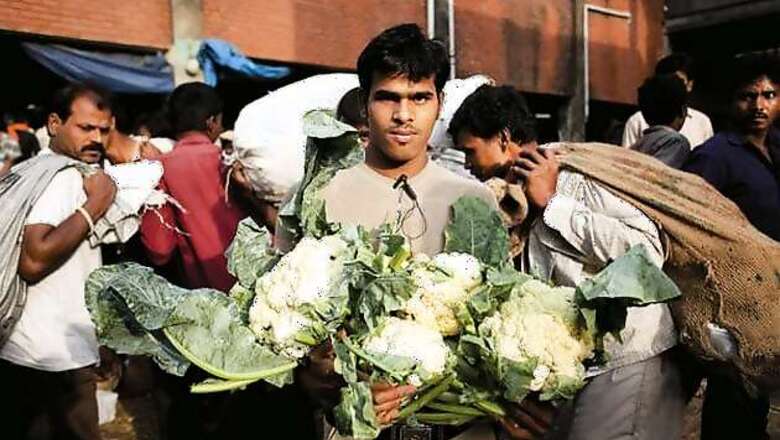
views
K Ganesh, 50, the Energizer Bunny of Indian entrepreneurship, is either angry, annoyed or sarcastic. I can't tell.
"VCs (venture capitalists) have a herd mentality. They don't mind funding the sixth baby products site or the eighth (discount) deals site. But one of the reasons we got into this business is because it isn't 'VC-able'. It means two pony-tailed youngsters out of college can't enter it. It's our competitive barrier to entry!" he says.
Ganesh, a 25-year veteran of funding, building, scaling and selling technology businesses, has a near-uncanny ability to spot and ride a trend before it becomes mainstream. His past ventures offer a concise view of how the Indian technology story evolved: Hardware maintenance in the 1990s, BPO in 2000, analytics in 2004 and online tutoring from 2005.
"But this is the toughest and yet most exciting of all my ventures," he says, with his characteristic half-smirk, half-smile that can be maddeningly hard to read.
The business Ganesh is referring to is BigBasket.com, an online grocer he funded and incubated just a few months back in December 2011. Just three months later he roped in $10 million in funding from private equity firm Ascent Capital.
"No VC can write a 'Series A' cheque of that size. And we were clear this isn't a $2 million or $3 million investment business," he says.
He is right, VCs don't like this business.
There's a reason for their scepticism: Selling groceries online is a bruising, penny-pinching business that has bled entrepreneurs and investors for over a decade and a half.
"My own personal belief is that this is a very complex business where margins will always be under pressure. Hence the amount of investment required to reach scale will be significant," says Kanwal Singh, co-founder of Helion Venture Partners, generally one of the most gung-ho investors in Indian e-commerce but a marked sceptic on groceries.
But that isn't preventing a bunch of Indian startups from trying.
www.kirana.com?
Connaught Place, bang in the heart of Delhi, isn't normally the kind of place where you'd expect an online grocer to set up shop. Real estate is prohibitively expensive, traffic and parking can be maddening and it's far away from Gurgaon's dense and rich urban jungle.
Yet, that is where Aaramshop, one of the fastest growing online grocers currently is headquartered.
It can afford to do so because, unlike most of its peers, it has no need for large warehouses, call centres to take orders, engineers or logistics staff. It has just 12 employees.
Yet, it home delivers grocery orders in over 25 cities.
In comparison, BigBasket, that serves just Bangalore city, has over 120 employees, three distribution hubs and 25 delivery vans.
Aaramshop's secret: It does not source, stock or deliver any of the products ordered by customers. Instead, it acts as the internet face for any neighbourhood grocery store (kiranas) that signs up with it.
"We believe e-commerce in its traditional form will not work with FMCGs (fast moving consumer goods) and groceries. Because unlike other categories, the margins available to retailers here range from 6-8 per cent, which makes stocking and logistics of groceries and perishable products a near impossible task," says Vijay Singh, 42, Aaramshop's founder and CEO.
Customers who log in to Aaramshop must select the kirana store nearest to them before ordering any products. Within seconds, Aaramshop relays the order via SMS and email to the kirana. And within hours the kirana delivers the order, with the customer paying in cash. The average order size a kirana gets through Aaramshop is around Rs 570, says Singh, compared to Rs 100 when customers were directly calling them up.
"The fundamental advantage of the kirana is their proximity and huge amount of trust with consumers. Besides, the view most of us have of the kirana store manned by an old gentleman wearing a banian is no longer true. Having seen the Subhiksha model, there is huge interest in them to change. Counters have changed, aisles have come in and most owners use high-end smartphones and Facebook," says Singh.
Subhiksha was, of course, the discount supermarket chain that rose dramatically to 1,600 outlets across India in just over a decade, before spectacularly flaming out in early 2009. Its twin value propositions of deep discounts on groceries and FMCG products together with local neighbourhood availability were fairly successful with Indian consumers.
The other impossible task is for any startup to match the extensive, deep and low-cost distribution network put in place over the decades by large and small FMCG companies in India: 7.8 million outlets retail groceries across India, of which grocers alone account for nearly 60 per cent.



















Comments
0 comment